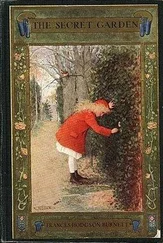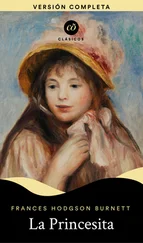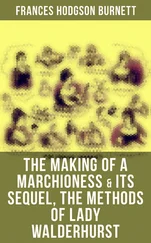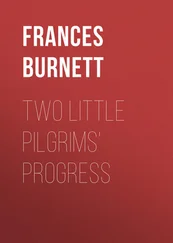Frances Burnett - Theo - A Sprightly Love Story
Здесь есть возможность читать онлайн «Frances Burnett - Theo - A Sprightly Love Story» — ознакомительный отрывок электронной книги совершенно бесплатно, а после прочтения отрывка купить полную версию. В некоторых случаях можно слушать аудио, скачать через торрент в формате fb2 и присутствует краткое содержание. Жанр: foreign_prose, Зарубежные любовные романы, на английском языке. Описание произведения, (предисловие) а так же отзывы посетителей доступны на портале библиотеки ЛибКат.
- Название:Theo: A Sprightly Love Story
- Автор:
- Жанр:
- Год:неизвестен
- ISBN:нет данных
- Рейтинг книги:4 / 5. Голосов: 1
-
Избранное:Добавить в избранное
- Отзывы:
-
Ваша оценка:
- 80
- 1
- 2
- 3
- 4
- 5
Theo: A Sprightly Love Story: краткое содержание, описание и аннотация
Предлагаем к чтению аннотацию, описание, краткое содержание или предисловие (зависит от того, что написал сам автор книги «Theo: A Sprightly Love Story»). Если вы не нашли необходимую информацию о книге — напишите в комментариях, мы постараемся отыскать её.
Theo: A Sprightly Love Story — читать онлайн ознакомительный отрывок
Ниже представлен текст книги, разбитый по страницам. Система сохранения места последней прочитанной страницы, позволяет с удобством читать онлайн бесплатно книгу «Theo: A Sprightly Love Story», без необходимости каждый раз заново искать на чём Вы остановились. Поставьте закладку, и сможете в любой момент перейти на страницу, на которой закончили чтение.
Интервал:
Закладка:
Burnett Frances Hodgson
Theo: A Sprightly Love Story
CHAPTER I
PREPARING FOR A JOURNEY
A heavy curtain of yellow fog rolled and drifted over the waste of beach, and rolled and drifted over the sea, and beneath the curtain the tide was coming in at Downport, and two pair of eyes were watching it. Both pair of eyes watched it from the same place, namely, from the shabby sitting-room of the shabby residence of David North, Esq., lawyer, and both watched it without any motive, it seemed, unless that the dull gray waves and their dull moaning were not out of accord with the watchers' feelings. One pair of eyes – a youthful, discontented black pair – watched it steadily, never turning away, as their owner stood in the deep, old-fashioned window, with both elbows resting upon the broad sill; but the other pair only glanced up now and then, almost furtively, from the piece of work Miss Pamela North, spinster, held in her slender, needle-worn fingers.
There had been a long silence in the shabby sitting-room for some time – and there was not often silence there. Three rampant, strong-lunged boys, and as many talkative school-girls, made the house of David North, Esq., rather a questionable paradise. But to-day, being half-holiday, the boys were out on the beach digging miraculous sand-caves, and getting up miraculous piratical battles and excursions with the bare-legged urchins so numerous in the fishermen's huts; and Joanna and Elinor had been absent all day, so the room left to Theo and her elder sister was quiet for once.
It was Miss Pamela herself who broke the stillness. "Theo," she said, with some elder-sister-like asperity, "it appears to me that you might find something better to do than to stand with your arms folded, as you have been doing for the last half hour. There is a whole basketful of the boys' socks that need mending and – "
"Pam!" interrupted Theo, desperately, turning over her shoulder a face more like the face of some young Spanish gipsy than that of a poor English solicitor's daughter. "Pam, I should really like to know if life is ever worth having, if everybody's life is like ours, or if there are really such people as we read of in books."
"You have been reading some ridiculous novel again," said Pamela, sententiously. "If you would be a little more sensible, and less romantic, Theodora, it would be a great deal better for all of us. What have you been reading?"
The capable gipsy face turned to the window again half-impatiently.
"I have been reading nothing to-day," was the answer. "I should think you knew that – on Saturday, with everything to do, and the shopping to attend to, and mamma scolding every one because the butcher's bill can't be paid. I was reading Jane Eyre, though, last night. Did you ever read Jane Eyre, Pamela?"
"I always have too much to do in attending to my duty," said Pamela, "without wasting my time in that manner. I should never find time to read Jane Eyre in twenty years. I wish I could."
"I wish you could, too," said Theo, meditatively. "I wish there was no such thing as duty. Duty always appears to me to be the very thing we don't want to do."
"Just at present, it is your duty to attend to those socks of Ralph and Arthur's," put in Pamela, dryly. "Perhaps you had better see to it at once, as tea will be ready soon, and you will have to cut bread for the children."
The girl turned away from the window with a sigh. Her discussions on subjects of this kind always ended in the same unsatisfactory manner; and really her young life was far from being a pleasant one. As the next in age to Pamela, though so many years lay between them, a hundred petty cares fell on her girlish shoulders, and tried her patience greatly with their weight, sometimes. And in the hard family struggle for everyday necessities there was too much of commonplace reality to admit of much poetry. The wearisome battling with life's needs had left the mother, as it leaves thousands of women, haggard, careworn, and not too smooth in disposition. There was no romance about her. She had fairly forgotten her girlhood, it seemed to lie so far behind; and even the unconquerable mother-love, that gave rise to her anxieties, had a touch of hardness about it. And Pamela had caught something of the sharp, harassed spirit too. But Theo had an odd secret sympathy for Pamela, though her sister never suspected it. Pamela had a love-story, and in Theo's eyes this one touch of forlorn romance was the silver lining to many clouds. Ten years ago, when Pamela had been a pretty girl, she had had a lover – poor Arthur Brunwalde – Theo always mentally designated him; and only a week before her wedding-day, death had ended her love-story forever. Poor Pamela! was Theo's thought: to have loved like Jane Eyre, and Agnes Wickfield, and Lord Bacon, and to have been so near release from the bread-and-butter cutting, and squabbling, and then to have lost all. Poor Pamela, indeed! So the lovely, impulsive, romance-loving younger sister cherished an odd interest in Pamela's thin, sharp face, and unsympathizing voice, and in picturing the sad romance of her youth, was always secretly regardful of the past in her trials of the present.
As she turned over the socks in the basket, she glanced up now and then at Pamela's face, which was bent over her work. It had been a pretty face, but now there were faint lines upon it here and there; the features once delicate were sharpened, the blue eyes were faded, and the blonde hair faded also. It was a face whose youth had been its beauty, and its youth had fled with Pamela North's happiness. Her life had ended in its prime; nay, not ended, for the completion had never come – it was to be a work unfinished till its close. Poor Arthur Brunwalde!
A few more silent stitches, and then the work slipped from Theo's fingers into her lap, and she lifted her big, inconsistent eyes again.
"Pam," she said, "were you ever at Lady Throckmorton's?"
A faint color showed itself on Pamela's faded face.
"Yes," she answered, sharply, "I was once. What nonsense is running in your mind now, for goodness sake?"
Theo flushed up to her forehead, no half flush; she actually glowed all over, her eyes catching a light where her delicate dark skin caught the dusky red.
"Don't be cross, Pam," she said, appealingly. "I can't help it. The letter she sent to mamma made me think of it. Oh, Pam! if I could only have accepted the invitation."
"But you can't," said Pam, concisely. "So you may as well let the matter rest."
"I know I can't," Theo returned, her quaint resignation telling its own story of previous disappointments. "I have nothing to wear, you know, and, of course, I couldn't go there, of all places in the world, without something nice."
There was another silence after this. Theo had gone back to her work with a sigh, and Miss Pamela was stitching industriously. She was never idle, and always taciturn, and on this occasion her mind was fully occupied. She was thinking of Lady Throckmorton's invitation too.
Her ladyship was a half-sister of their father's, and from the height of her grandeur magnanimously patronizing now and then. It was during her one visit to London, under this relative's patronage, that Pamela had met Arthur Brunwalde, and it was through her that the match had been made. But when Arthur died, and she found that Pamela was fixed in her determination to make a sacrifice of her youth on the altar of her dead love, Lady Throckmorton lost patience. It was absurd, she said; Mr. North could not afford it, and if Pamela persisted, she would wash her hands of the whole affair. But Pamela was immovable, and, accordingly, had never seen her patroness since. It so happened, however, that her ladyship had suddenly recollected Theo, whose gipsy face had once struck her fancy, and the result of the sudden recollection was another invitation. Her letter had arrived that very morning at breakfast time, and had caused some sensation. A visit to London, under such auspices, was more than the most sanguine had ever dared to dream of.
Читать дальшеИнтервал:
Закладка:
Похожие книги на «Theo: A Sprightly Love Story»
Представляем Вашему вниманию похожие книги на «Theo: A Sprightly Love Story» списком для выбора. Мы отобрали схожую по названию и смыслу литературу в надежде предоставить читателям больше вариантов отыскать новые, интересные, ещё непрочитанные произведения.
Обсуждение, отзывы о книге «Theo: A Sprightly Love Story» и просто собственные мнения читателей. Оставьте ваши комментарии, напишите, что Вы думаете о произведении, его смысле или главных героях. Укажите что конкретно понравилось, а что нет, и почему Вы так считаете.












